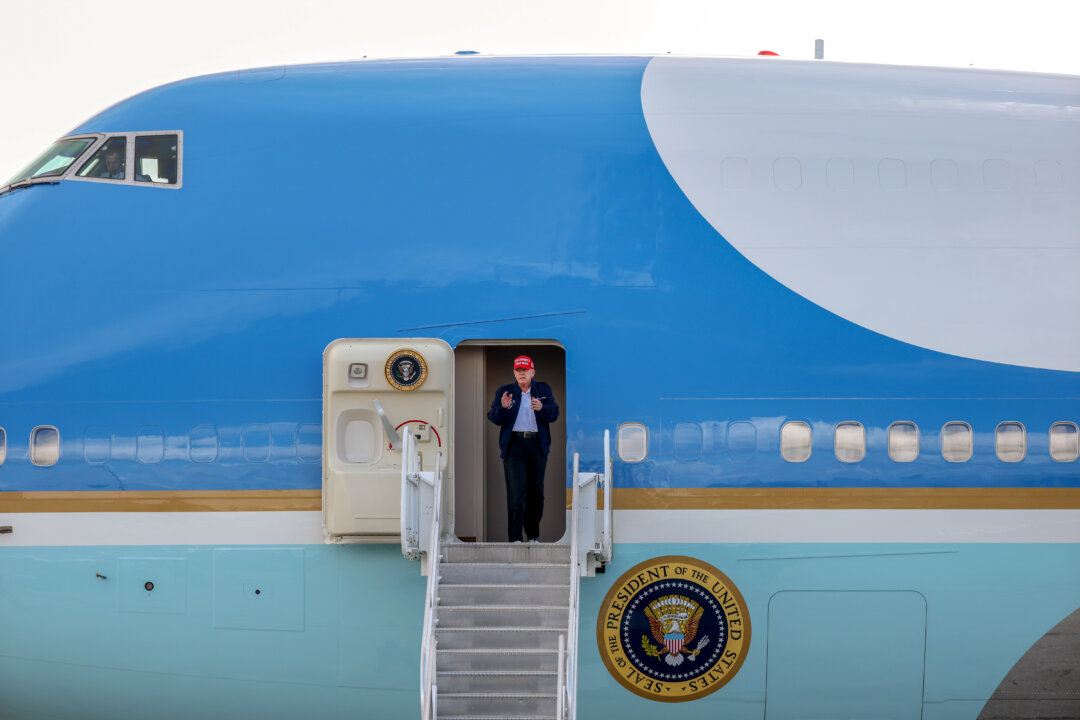The original delivery date of December 2024 was extended to 2027 and 2028 for two planes.
President Donald Trump said he is considering buying a used plane and converting it into a presidential aircraft as Boeing continues to delay Air Force One deliveries.
“I’m not happy with Boeing. It takes them a long time to do Air Force One. We gave that contract out a long time ago. It was a fixed-price contract,” Trump told reporters on Wednesday. “And I’m not happy with the fact that it’s taken so long. And we may do something else. We may go and buy a plane or get a plane or something. But I’m not happy with the fact that it’s taken Boeing so long. There’s no excuse for it.”
Trump dismissed the option of buying Airbus planes as an alternative to Boeing while talking to reporters.
“No, I would not consider Airbus over Boeing,” he said. “I could buy one that was used and convert it. I could buy one from another country, perhaps, or get one from another country. So, we’re looking at other alternatives, because it’s taking Boeing too long.”
In 2018, the Trump administration signed a $3.9 billion contract to build two 747-8 planes that would serve as Air Force One aircraft, replacing the current 747-200 fleet.
The original delivery date was scheduled for December 2024. The deadline was pushed to at least 2027 and 2028. Boeing blamed the delays on labor constraints, changes in the designs, and supply chain issues.
“Our team is fighting through a very, very challenging program—two very complex airplanes,” Ted Colbert, who heads Boeing Defense, Space, and Security, said in July last year. “We’ve done a ton of investment in our workforce and training, efficiency, work on the factory floor.”
The project is now estimated to cost about $2 billion more than the initial budget. When the contract was signed in 2018, the White House said that the deal would save taxpayers more than $1.4 billion from the initially proposed $5.3 billion cost.
The Epoch Times reached out to Boeing for comment on Trump’s latest remarks but did not receive a reply by publication time.The new Boeing 747-8 aircraft are being designed as an airborne White House, set to be equipped with military-grade avionics, a self-defense suite, and advanced communications systems. The planes are expected to be capable of operating under extreme security situations, such as a nuclear war.
In December 2024, billionaire Elon Musk, who leads the Department of Government Efficiency, visited Boeing.
Commenting on the visit, Boeing CEO Kelly Ortberg said the company was working with the administration to speed up delivery while calling discussions with Musk “constructive.”
Last year, Musk criticized Boeing for its diversity, equity, and inclusion (DEI) initiatives, warning that these policies were putting passenger lives at risk.
His comments followed an incident involving a Boeing 737 Max 9 aircraft in which a door plug of the plane’s fuselage snapped off midair. The plane was forced to make an emergency landing and passengers were injured.
Boeing came under the scrutiny of multiple agencies such as the U.S. Department of Justice, the Federal Aviation Administration, and the National Transportation Safety Board.

In February 2024, the company said it planned on reworking around 50 undelivered planes after a supplier notified it about engineering issues linked to fuselages.
An employee working at the supplier informed their manager that two holes in the planes may not have been drilled per requirements.
Last month, the company revealed it made 348 commercial airplane deliveries in 2024, down 34 percent from the previous year. Rival Airbus delivered 766 aircraft last year.
Boeing reported $66.51 billion in revenues in 2024, down 14 percent from 2023. Its net loss ballooned from $2.24 billion to $11.82 billion during this period.
“My team and I are focused on making the fundamental changes needed to fully recover our company’s performance and restore trust with our customers, employees, suppliers, investors, regulators, and all others who are counting on us,” Boeing President Kelly Ortberg said in January.
The Associated Press contributed to the report.

